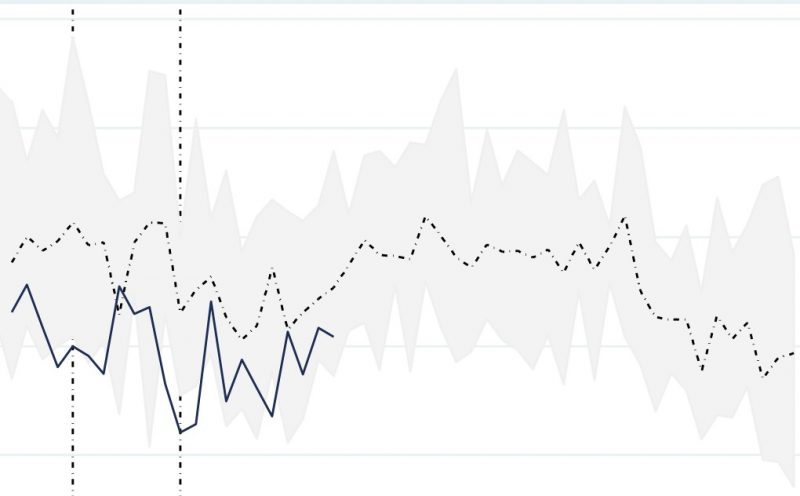 Lígia Teixeira highlights the need for better data and better use of evidence in tackling homelessness in the UK, as well as the urgency surrounding relevant policy-making in the context of COVID-19.
Lígia Teixeira highlights the need for better data and better use of evidence in tackling homelessness in the UK, as well as the urgency surrounding relevant policy-making in the context of COVID-19.
COVID-19 came at a time when homelessness remained stubbornly high in many parts of the UK. While the situation had improved significantly since the mid-1960s, too many people remained without a home. But then on March 27, Westminster called for all street homeless people to be housed within days: an ambition long-held by the entire homelessness sector was achieved almost overnight.
While this was only a temporary solution to a complex problem, the crisis offers a rare opportunity to transform the homelessness system for good. An effective way of achieving such a step change would be by focusing on what works; in other words, by finding and funding solutions backed by evidence and data. As we highlight in our new book, Using Evidence to End Homelessness, the UK spends a significant amount on homelessness services, but very little on learning which policies and interventions work. Rigorous evaluations of homelessness policy are exceedingly rare. The vast majority of the 227 studies in our Evidence and Gap Map of Effectiveness studies are from the US; only 12 of them are from the UK.
Yet data and rigorous evidence ought to be a routine part of government operations, used to drive improvements to policies and services aimed at helping people access and maintain stable, affordable housing. The good news is that the UK had already taken important steps towards accomplishing such a vision, but much remains to be done, not least in the light of COVID-19.
So how do we ensure that we do not revert back to ‘business as usual’ after the lockdown? How might we bring about a transformation of the homelessness sector? Our proposed methods are threefold:
First, improve the speed and quality of response by strengthening data foundations and data practices. The establishment of better foundations around data collection, architecture, and analysis would allow better insight into the phenomenon of homelessness and improve our ability to predict for whom, when, where and why homelessness may be an issue. It would enable us to respond faster and target efforts more effectively. We need to figure out what data is needed to support evaluation, research and development, and programme management, and advocate for collecting it.
In England, this work would build on the efforts that the Ministry of Housing, Communities and Local Government has made to improve the quality of homelessness data through the H-CLIC system, which creates opportunities for linking personal-level data with other administrative data in order to better understand the impact of policy interventions at a lower cost.
Second, enable smarter decision-making by building evidence about the policies and interventions that will achieve the most effective and efficient results. There is currently surprisingly little rigorous research on homelessness policy and programmes. Though some things we do are effective, there is a lot we don’t know. That’s inevitable. What isn’t inevitable — and where the real problems lie — is assuming, without evidence, that policies work. Examples of evaluation using experimental and quasi-experimental methods, like the Troubled Families and Rough Sleepers Initiatives, are still rare. We need more and better experiments and systematic reviews, to identify which interventions are effective and cost-effective in addressing homelessness.
Third, upskill the workforce and nurture evidence-based leadership to strengthen our capacity to act on robust evidence and insight. It’s hard to rid ourselves of practices that are informed by little more than wishful thinking and to end policies that don’t work. But that is what we must do to ensure that efforts are effective. The first step would be to do more rigorous policy evaluations. The next would be to heed them. This will require a shift in culture and mindsets; developing new behaviours around the use of data and evidence and a deep appreciation for learning.
Shifting the homelessness system towards a ‘what works’ approach will not happen overnight. Other changes will also need to happen: together with evidence-based approaches there is a need for housing reforms, a need to address the root causes of poverty, and to protect our social safety. But the crisis is still deepening around us, and numbers may be worse in a year’s time unless decisive action continues. The worst thing we could do now would be to simply return to the way things were before, rather than build better: we have before us a very rare opportunity to reboot the entire homelessness system and revolutionise it for the better.
___________________
 Lígia Teixeira is CEO of Centre for Homelessness Impact and editor of Using Evidence to End Homelessness.
Lígia Teixeira is CEO of Centre for Homelessness Impact and editor of Using Evidence to End Homelessness.
All articles posted on this blog give the views of the author(s), and not the position of LSE British Politics and Policy, nor of the London School of Economics and Political Science. Featured image credit: by Jozsef Hocza on Unsplash.







